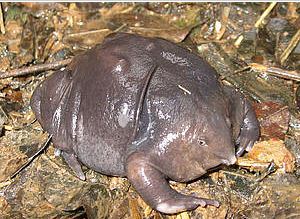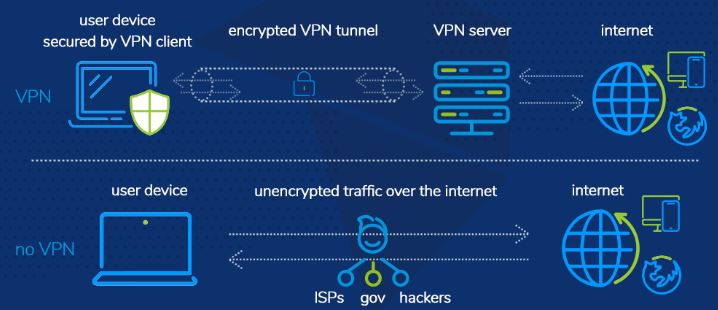Purple Frog
The recently announced Tamil Nadu Endangered Species Conservation Fund (TNESCF) in 2024 includes Purple frog among other species.
Tamil Nadu Endangered Species Conservation Fund (TNESCF) with a corpus of Rs. 50 crore, will cover rare, endangered, threatened, and lesser-known species like pangolin, otter, Nilgiri marten, slender Loris, lion-tailed macaque, and dugong.
- It is also known as pignose frog, a soil-dwelling frog that belongs to the Nasikabatrachidae family.
- Native – Endemic to the Western Ghats in Tamil Nadu and Kerala.
- Anamalai hills is one of its prime habitats but occur in higher numbers in the Western Ghat mountains in Kerala.
- 2 types in Tamil Nadu
- Nasikabatrachus sahyadrensis – 1st seen in 2003 in Idukki, Kerala.
- Nasikabatrachus bhupathi – 1st seen near Srivilliputhur Grizzled Giant Squirrel Wildlife Sanctuary in 2017.
- A Living fossil – It has similarities to the Sooglossidae family of frogs in Seychelles, supporting the Gondwana landmass hypothesis.
- It is also believed to have co-existed with dinosaurs.
- Subterranean life – It remains underground for almost a year except for 2-3 weeks during the monsoon as it comes out to mate.
- Features – A bloated body, pointed snout and stout limbs, while the tadpoles have a sucker-like mouth which helps them stick onto the rocks in the fast-flowing streams.
- When out, they become prey to owls, the water snake among others.
- The females lay 3,000 to 4,000 eggs, which develop into tadpoles in 7 to 8 days and the tadpoles become froglets in 100 to 130 days.

- Major threats – Habitat loss, road networks, use of pesticides in plantation areas like Valparai and climate change.
- Lack of rain after they lay eggs, the egg-laying sites will become dry, leading to destruction of eggs.
- Heavy rain with landslips can also damage their habitats.
- Protection status
- IUCN Red List – Near Threatened, since 2020.
- Wildlife Protection (Amendment) Act, 2022 – Schedule I
According to initial assessments, the Purple Frog ranked 4 on the ‘EDGE (Evolutionarily Distinct and Globally Endangered) of Existence’ priority amphibians list collated by the Zoological Society of London.
Reference
The Hindu| TNESCF to conserve Purple Frog
Sub-national Climate Fund
Goa to be 1st state in India to get Subnational Climate Fund (SCF) with the support of World Bank.
- A global blended finance initiative to develop mid-size climate resilient infrastructure & nature-based solutions.
- Aims – To catalyse climate mitigation and adaptation solutions at the subnational level through a transformative finance model.
- To attract public & private investment, to deliver certified climate & Sustainable Development impacts and Nature-based Solutions.
- Fund Manager – Pegasus Capital, accredited by the GCF.
- Technical Assistance Manager – IUCN.
- Anchor Investor of Concessional Capital – Green Climate Fund (GCF)
The Green Climate Fund (GCF) is the is the world’s largest dedicated fund helping developing countries reduce their greenhouse gas emissions, set up by the UN system.
- Need – 70% of known climate solutions are located within the boundaries of subnational authorities.
- To overcome project-level barriers and limitations in attracting private investment.
- The opportunities – Sustainable energy solutions, waste and water management, urban development solutions and sustainable agriculture.
- Target impact – Enable access to clean & affordable energy and water.
- Reduce CO2 emissions, combat domestic and ambient pollution.
- Support education, economic growth through reliable electricity and create jobs.
- Support a circular economy and sustainable use of resources.
- Sustainably manage, and restore natural and modified ecosystems.
- Provide human well-being and biodiversity benefits.
- Significance – It presents a positive disruptive solution on how subnational climate projects should be structured, de-risked, and funded.

References
- Times of India| Goa to get Subnational Climate fund
- Subnational. Finance| Sub-national Climate Fund
Paruveta Utsavam
The Indian National Trust for Art and Cultural Heritage (INTACH) is making efforts to secure UNESCO recognition for the annual 'Paruveta' festival as an 'intangible cultural heritage'.
- It is an annual mock hunting festival, celebrated at Sri Narasimha Swamy temple in Ahobilam in Andhra Pradesh.
- Origin – Legend says that the incarnation of Lord Vishnu as Narasimha, the man-lion, in Ahobilam got married to Maha Lakshmi, who was reborn as Chenchulakshmi, a tribal girl.
- Chenchu tribes consider Ahobila Narashima as their brother-in-law and the tradition is inviting him home on Makar Sankranti.
- Festival – It starts with the tribals shooting 2 arrows at the palanquin, which is taken to the 32 Chenchu tribal villages surrounding Ahobilam town for a duration of 40 days.
- Chenchus take ‘Narasimha Deeksha’ by wearing yellow robes and ‘Tulasi Mala’ and observe celibacy during this period.
Unlike other Paruveta, Ahobilam utsav is the only tradition conducted for a ‘mandala’ (40 days).
- Symbol of communal harmony – The temple staff stay in these hamlets for the entire period, indicating the presence of a casteless society in the past, with no hint of untouchability.
- Tribal link – By ‘Guru Parampara’, the temple is governed by the 600-year-old Ahobila Mutt, which encouraged this tribal festival to spread Srivaishnavism among the folk tribes.
The Indian National Trust for Art and Cultural Heritage (INTACH) was founded in 1984 in New Delhi as a registered society to spearhead heritage awareness & conservation in India.
Intangible cultural heritages encompass traditions, festivals, and skills passed down from ancestors through generations. The Sangeet Natak Academy is the designated nodal agency for deliberations to UNESCO in this regard.
References
- The Hindu| Efforts to get UNESCO tag for Paruveta Utsav
- Times of India| Origin of Ahobilam Paruveta Utsavam
UAE's Golden Visa
Dubai introduces 5-year multiple-entry visa for Indians.
- A long-term residence visa that enables foreign talent to live, work, or study in the UAE
- Aim – To further bolster travel between India and Dubai, to foster sustained economic collaborations and encourage tourism and business ties.
In 2023, Dubai welcomed 2.46 million overnight visitors from India, a 25% increase from the pre-pandemic era. With exceptional 34% year-on-year growth, India continued to be the number one source market with the highest number of international visitors from a single country.
- Covers 7 emirates – It includes Abu Dhabi, Ajman, Dubai, Fujairah, Ras Al Khaimah, Sharjah, and Umm Al Quwain.
- Benefits – 6 month entry visa with multiple entries, leading to residency issuance.
- Renewable 5 or 10-year long-term residence visa.
- No requirement for a local sponsor.
- Ability to stay outside the UAE for over 6 months without losing residency status.
- Option to sponsor family members, including spouses and children.
- Freedom to sponsor any number of domestic workers.
- Provision for family members to remain in the UAE under the visa.
- It also allows investors to invest in public investments for the issuance of a 10 year self-sponsored residency permit without the need for a sponsor or host residing in the country.
- Significance – It enables the tourists to contribute significantly to the UAE’s diversification strategy, reduce reliance on oil, boost sectors like technology, education, health, and fortify its position as a global business and talent hub.
References
- The Indian Express| Dubai’s 5 year multiple entry Visa for Indians
- The Indian Express| UAE’s Golden Visa
Virtual Private Network (VPN)
Mumbai cops arrested a 21 year old student who allegedly sent threatening emails by masking his IP address using a Virtual Private Network service.
- VPN – Virtual Private Network
- Virtual – No physical cables are involved.
- Private – No one else can see your data or browsing activity.
- Networked – Multiple devices work together to maintain an established link.
- Working – It establishes a digital connection between your computer and a remote server owned by a VPN provider, creating a point-to-point tunnel that encrypts your personal data, masks your IP address.

- Secure your data – VPN scrambles personal data into code and renders it unreadable to anyone without an encryption key.
- Bypass censorship and surveillance – Location spoofing allow users the ability to circumvent firewalls and view blocked websites.
- Prevent tracking – It masks your IP address, prevents Internet service providers (ISP's) tracking, and keeps your personal data private.
|
Name
|
Connection Method
|
Use Case
|
|
Client-to-Site VPN
(Remote Access VPN)
|
Connect to a private network or 3rd party server
|
For remote workers to access company files over a private connection (or) for users who wish to browse the public Internet securely
|
|
Site-to-Site VPN
|
Network connects to another network via LAN, WAN
|
For organizations to link their internal networks across multiple sites in different locations securely
|
|
VPN Applications
|
Connect to a private network from smartphone
|
For mobile users while on the go, or while experiencing an unstable Internet connection
|
References
- The Indian Express| Misuse of VPN
- Microsoft| Virtual Private Network
